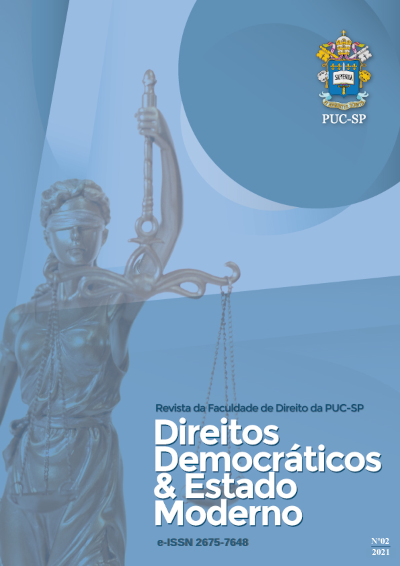Educação e direito: a conexão necessária para a formação integral e integradora da criança e do adolescente junto ao ambiente escolar
DOI:
https://doi.org/10.23925/ddem.v0i2.53782Palavras-chave:
Educação cidadã, Base Nacional Comum Curricular, Transdisciplinaridade, Ensino híbrido, AfetoResumo
Apresenta-se uma pesquisa empírica realizada nos anos iniciais do primeiro ciclo do ensino fundamental, mais precisamente nos 3º e 4º anos, no decorrer dos anos letivos de 2016 e 2017, realizada na “EMEF Professor Antonio Andrade Guimarães, na cidade de Vera Cruz/SP. Neste contexto, o objetivo geral da presente pesquisa foi de promover atividades pedagógicas relacionadas ao Estatuto da Criança e do Adolescente-ECA, enfatizando os preceitos presentes na lei de nº 11.525/2007, para incluir conteúdo que trate dos direitos das crianças e dos adolescentes no currículo do ensino fundamental, em diálogo com as demais matérias curriculares, avaliando conhecimentos, comportamentos e atitudes anteriores e posteriores à formação. O estudo do diploma estatutário despontou em sala de aula, como um código de ética infanto-adolescente, para contribuir na formação cidadã dos estudantes do ensino fundamental, enquanto seres humanos em processo de desenvolvimento, priorizando a Doutrina da Proteção Integral oportunizando a possibilidade de resolução de conflitos da sociedade. Foi construído junto aos alunos um ensino-aprendizagem por via de resoluções de contendas coletivas, bem assim, o pensar sobre os seus direitos e deveres, enquanto seres coletivos e pertencentes a um sistema social. Com o decorrer da prática educativa, os resultados evidenciaram mudanças comportamentais e de concepções, aumento da segurança, autoestima e capacidade argumentativa por parte das crianças, maior frequência escolar, bem como maior frequência dos pais ou responsáveis em reuniões escolares. Essa prática pedagógica realça uma tendência que acompanha o desenvolvimento da proteção dos direitos humanos, em que as crianças são titulares de direito e não objeto de proteção, critérios norteadores para a elaboração e aplicação das normas infanto-adolescentes. Nesse ínterim, a fraternidade desponta como alavanca de efetivação do ordenamento legal estatutário nas salas de aula, concretizando um direito pertencente às minorias que ficam à mercê da maioria, dos adultos, para a real efetivação de seus direitos. Optou-se pela abordagem metodológica qualitativa, a qual compreende a observação, registro e análise dos dados por meio de categorias descritivas. Utilizou-se, também, questionários com perguntas abertas. O procedimento adotado foi o método hipotético-dedutivo em que a educação estatutária nas salas de aula é analisada como mecanismo de construção da personalidade ético-social do pequeno cidadão, desenvolvendo um projeto de vida, influenciando não apenas em seus futuros, mas da própria sociedade.
Palavras-chave: Educação cidadã. Base Nacional Comum Curricular. Transdisciplinaridade. Ensino híbrido. Afeto.
Downloads
Publicado
Como Citar
Edição
Seção
Licença

Este obra está licenciada com uma Licença Creative Commons Atribuição 4.0 Internacional.
Revista DD&EM - ISSN 2675-7648
















